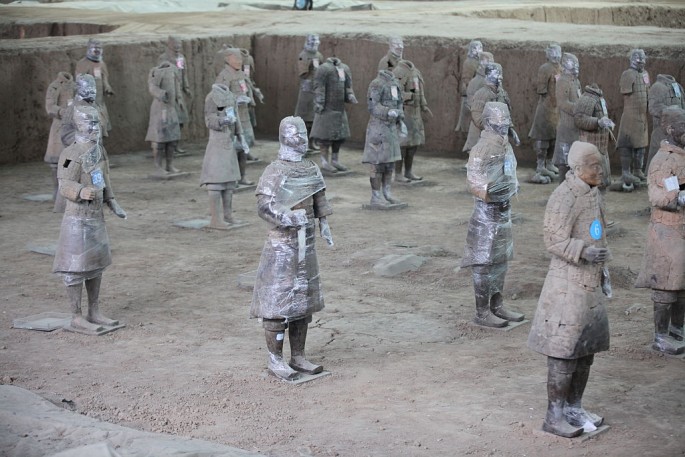A BBC report about the Terracotta Warriors of northern China was contradicted by a Chinese archaeologist who said that her statement was taken out of context and her remarks about Western influence on the 8,000 life-sized figures were overstated.
On Oct. 12, BBC released a report which said that some archaeologists believed that the Terracotta Warriors discovered at the Tomb of the First Emperor in today's Xi'an, Shaanxi Province, may have found its inspiration from Ancient Greece.
The BBC article quoted Li Xiuzhen, senior archaeologist from the Emperor Qin Shi Huang's Mausoleum Site Museum, as saying, "We now think the Terracotta Army, the acrobats and the bronze sculptures found on site were inspired by ancient Greek sculptures and art."
But Li told the Xinhua News Agency that she was quoted out of context in the article and the BBC reporters have ignored much of the information she told them.
"I think the terracotta warriors may be inspired by Western culture, but were uniquely made by the Chinese. BBC overstated my remarks about Western inspiration and ignored main points I made during the interview," Li told Xinhua.
According to the Chinese archaeologist, many factors contributed to the creation of the Terracotta Warrior that includes local nature and cultural environment, soil, the craftsmen and the traditional funeral culture.
Li also objected to the article in which her quotes were put before the statement made by Professor Lukas Nickel of the University of Vienna. She said Nickel's opinion is contrary to her own, but the reported made it appear as though they share a similar idea.
In the article, Prof. Nickel said, "I imagine that a Greek sculptor may have been at the site to train the locals."
"I am an archaeologist, and I value evidence. I've found no Greek names on the backs of Terracotta Warriors, which supports my idea that there was no Greek artisan training the local sculptors," Li clarified.



























